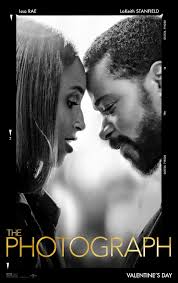Lessons About Fear, Poor Communication and Missed Opportunities

Last night, my husband and I went to see the movie The Photograph. If you haven’t seen it yet, you might want to check it out before reading this post, but I will try to avoid major spoilers. Although I mistakenly went into this movie expecting more of a romantic comedy, I was not disappointed with the overall story and performances in this romantic drama. I not only greatly appreciated the representation of Black love on the big screen, but I also enjoyed the thematic elements used to illustrate this budding love story.
In the movie, Issa Rae’s character (Mae) receives a letter from her recently deceased mother and is processing her loss and the history of their complex mother-daughter relationship. As Mae struggles to understand her mother as a famous photographer and a woman she really didn’t know, she meets Michael, played by Lakeith Stanfield. Michael is getting over a recent break-up and is a reporter that happens to be investigating a story in Louisiana, which is Mae’s mother’s hometown. In his pursuit of information for his story, he interviews longtime resident, Isaac, played by Rob Morgan. Isaac reveals to Michael his own sense of regret and shows Michael the photograph of his lost love, Christiana (Mae’s mother), played by Chanté Adams. The intertwining of these two love stories is poignant and reveals heartfelt truths about the impact of fear, lack of communication and missed opportunities in romantic relationships.
As human beings we all experience fear at different times and to varying degrees. Fear is our body’s natural response to perceived danger. In relationships, the perceived threat of emotional pain that may come from rejection and loss of connection can be enough to disrupt and interfere with any chance of lasting love. In the film Isaac feared change, Christiana feared stagnation, Mae feared becoming her mother and not knowing how to love, and Michael feared making mistakes and not knowing what to say. The way we navigate our fears is directly tied to our sense of peace and wellbeing. Just as the characters in the film, we all make choices. In doing so, it’s important that we wisely evaluate risks and benefits in light of what is true about who we are and who we are becoming. Fear is not all bad. It can provide valuable information for us. However, it is important to see it for what is and not allow ourselves to be solely ruled by it.
Poor communication is also the culprit of many mishaps and regrets. Sometimes what’s not said is just as problematic as what is said. This fact shows up many times throughout the movie. In an effort not to spoil the plot I won’t get into details. However, it’s safe to say that all the characters suffered from not practicing honest and clear communication. Reasons for this can also be tied to fear, insecurity and lack of awareness. The good news is communication skills can be learned and do not have to be the downfall of a relationship. Again, open and honest communication can provide information and an opportunity for us to make informed choices and experience growth and maturity.
Lamenting missed opportunities can be a source of great emotional pain. Michael ends up writing an article entitled Loss, and that is exactly the feeling that is often described in response to perceived missed opportunities. We grieve the loss of what we think might have been. We tell ourselves a story of greener grass on the other side and regret our choices and decisions. Beating ourselves up over the past is not helpful, but learning from it and moving on with wisdom is the best we can do. It’s important to recognize that no one is perfect. And on our human journey, we are all trying to do the best with the information, resources and set of experiences we have at the given time. This recognition not only helps reduce some of our fears and improve our communication with others, but it also allows for self-compassion and compassion toward others that results in a greater sense of peace and harmony in our relationships and our world.
If you are experiencing distress in your relationships and would like to speak with a therapist please call 818-806-9170 to schedule a free 10-minute phone consultation.
To purchase a copy of Lisa Locke’s book Blockbuster Love – Part1: Romance: Lessons from the Movies on How to Create Lasting Love, click here. If you would like to be on the waiting list for the upcoming book Blockbuster Love – Part2: Reality: Lessons from the Movies on How to Create Lasting Love, like the Blockbuster Love Facebook page or view my website at LisaLockeMFT.com
